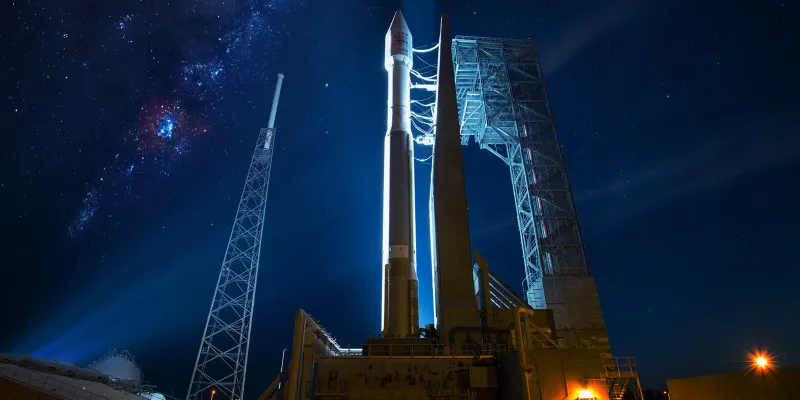Dhruva Space was launched to establish India as a global satellite hub
The Turning Point is a series of short articles that focuses on the moment when an entrepreneur hit upon their winning idea. This week, we look at Dhruva Space, a full stack space engineering solutions startup.
In June this year, spacetech startup successfully tested and space qualified its Satellite Orbital Deployer (DSOD 1U), which was on Indian Space Research Organisation’s (ISRO’s) PSLV C53.
While this marked the beginning of India’s private sector involvement in space launches, it also cleared the way for Dhruva Space for the launch of its satellite missions--Thybolt-1 and Thybolt-2–as a part of the upcoming PSLV C54 mission.
Founded in 2012 by Sanjay Nekkanti, Chaitanya Dora Surapureddy, Abhay Egoor, and Krishna Teja Penamakuru, Dhruva Space is engaged in the development of small satellites in the commercial, governmental, and academic markets. It provides full-stack space-engineering solutions across launch, space, and ground segments.
Based out of Hyderabad, India, and Graz, Austria, the startup has raised Rs 26.5 crore to date from IAN Fund and Blue Ashva Capital. Other investors include Mumbai Angels (MA) Network; Ravi Kanth Reddy, Managing Director, Hotcrete; and other angel investors.
How it started?
Sanjay built his first satellite during SRM University’s SRMSAT project in 2011. Following this, he pursued a dual-degree Master’s programme in Space Engineering in Sweden and France. Upon his return to India, Sanjay was determined to establish India as a satellite making capital of the world.
With this in mind, he founded Dhruva Space Private Limited in 2012. In 2015, Sanjay reconnected with his college friends Abhay, Chaitanya, and Krishna when he consulted for Thybolt, an electronic design lab based in Hyderabad.
Realising their common interest in building a business in the spacetech sector, the four friends decided to merge Thybolt into Dhruva Space to create the first India-made satellite.

Representational Image [ Image Credit: Shutterstock]
Challenges
Building a business in this space was not an easy feat for the company in the initial days. India had very few private players in the spacetech sector, and the market was segmented only into academia, which is academic institutions building small satellites in association with ISRO.
“When Dhruva Space started up in 2012, the market was not very receptive to spacetech entrepreneurs trying to build a full solution, and therefore there was limited access to capital.
At the time, the private space sector was considered a ‘high-risk domain’, and the consensus was such that there was no guarantee of a reward,” says Sanjay.
But this did not deter the company from entering the spacetech sector.
“Access to capital was very difficult in 2012, but as the dialogue around satellite and space technologies evolved over the years, Dhruva Space has raised Rs 26.5 crore to date, and we are supported by institutional and angel funds,” adds Sanjay.
Dhruva Space has been partnering with reputed institutes such as IIT Hyderabad and SNIST to empower faculty and academia in teaching Space Engineering in line with the Government of India's vision to launch 75 student-made satellites in phases from August 15, 2022, to 2023.
The startup is also working with the Space Programme of India to supply components for space activities, giving access to the network of India's Space industry.
What now?
In March 2022, the startup signed a commercial launch services agreement with NewSpace India Limited to enable space activities.
In June this year, Dhruva Space signed an MoU with Indian National Space Promotion and Authorization Center (IN-SPACe) for the enablement of space activities, namely the testing and launch of satellites and satellite components.
“Over the next two quarters, our primary focus is to undertake technology demonstrations for as many of our subsystems and satellites as possible,” says Abhay.
“Apart from that, we shall also be enabling our customers to launch their satellites on our deployer. This is in addition to expanding our global customer base for our flagship products such as the space-grade solar panels and satellite platforms,” he adds.
Dhruva Space’s vision is to provide faster, reliable, and affordable offerings across the space, launch, and ground segments as India’s first private spacetech startup.
Beyond this, the company aims to hold true to its ‘Make-in-India for the world’ values.
“There is a thriving vendor network supplying integral parts, but there is no company building products and IP using it. We are looking to contribute to this ecosystem by building indigenous products and to create infrastructure and/or facilities where we see gaps,” says Krishna, Chief Operating Officer, Dhruva Space.
(The story was updated to fix a typo in the headline)
Edited by Megha Reddy








